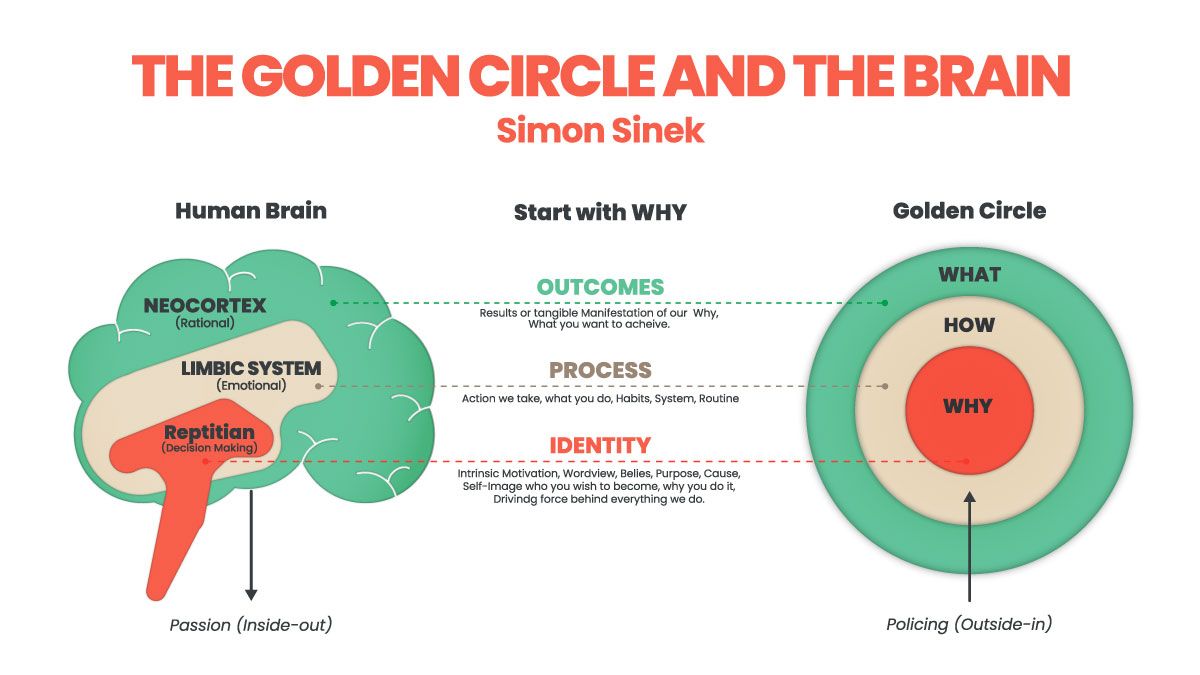The Psychology of Advertising: How to Influence Your Customers’ Behavior
Understanding the psychology of advertising can help businesses craft more compelling marketing campaigns that resonate with their target audience on a deeper level! So, let’s explore the secrets behind effective persuasion strategies and their impact on consumer perceptions and behaviors.
Understanding Cognitive Biases
If you want to improve your marketing and grow your business, you need to have a solid handle on cognitive biases. Ingrained in human psychology, these biases serve as mental shortcuts that significantly influence decision-making processes. One of the most prevalent biases, confirmation bias, leads individuals to seek information that confirms their preexisting beliefs, potentially distorting perceptions of products or services. Similarly, anchoring bias occurs when individuals rely too heavily on the first piece of information they receive, impacting their subsequent judgments. Marketers can tailor their messaging and offerings to resonate with consumers' subconscious preferences by researching these biases and others like them. Leveraging the scarcity effect, for instance, creates a sense of urgency that prompts customers to act swiftly, driving conversions!

The Role of Emotions in Advertising
Emotions have significant sway over consumer decision-making. They frequently outweigh rational decision-making! So, by tapping into consumers' emotions, marketers can create memorable and impactful advertisements that resonate with their target audience. For example, heartwarming storytelling evokes empathy and fosters a connection between the brand and the consumer. Additionally, ads that evoke feelings of joy or excitement can leave a lasting impression, increasing brand recall and loyalty. Therefore, by leveraging emotions, marketers can create more effective advertising strategies that evoke desired responses from their audience. Take a look at the image below illustrating how the part of the brain that experiences emotions is the same part of the brain where decisions are made.

Creating Persuasive Visuals
Visual elements hold immense power in capturing attention and conveying brand messages. Utilizing color psychology can evoke specific emotions and associations, influencing consumer perceptions. Moreover, carefully selected imagery that resonates with your target audience can create a strong emotional connection, enhancing brand affinity. Of course, it’s important to make sure that your visuals are aesthetically pleasing and align with your brand identity to maintain consistency across your marketing materials! Likewise, incorporating clear and concise design elements helps convey your message more effectively and facilitates better comprehension.
Leveraging Social Proof
Social proof is a big part of making use of the psychology of advertising. Testimonials from satisfied customers, celebrity endorsements, and user-generated content all serve as effective forms of social proof that can validate your brand's value and build trust with potential customers. Incorporating these elements into your marketing materials can help alleviate doubts and persuade prospects to take action! However, it's important to consider your ideal customer profile when selecting the most relevant sources of social proof. As such, your ideal source of social proof will vary slightly based on your ideal customer profile. Logically, understanding your audience's preferences and demographics can guide you in choosing the most compelling forms of social proof to showcase!

Testimonials from Satisfied Customers

Celebrity Endorsements

User-Generated Content
Harnessing the Power of Storytelling in Marketing
Through compelling narratives, brands can transcend mere product descriptions and engage consumers on an emotional level. Storytelling allows businesses to convey their values, mission, and unique identity in a relatable and memorable way, resonating with their target audience. By sharing authentic stories that resonate with consumers' experiences and aspirations, brands can cultivate loyalty and trust.
Storytelling in marketing provides an opportunity to humanize your brand and differentiate yourself from competitors in a crowded market.
The Influence of Authority Figures
When authority figures endorse a product or service, they lend credibility and legitimacy to the brand, instilling confidence in it! Whether it's a respected industry expert or a well-known influencer, their endorsement can sway perceptions and influence purchasing decisions. So, by leveraging the influence of authority figures in your marketing efforts, you can tap into their established trust and authority within your target audience, positioning your brand as a reputable choice. However, do make sure that the authority figure actually aligns with your brand values and resonates with your target demographic to maximize the effectiveness of the endorsement!
Nudging Behavior with Behavioral Economics
If marketers understand the psychology of advertising and the psychological factors that shape decision-making, they can design strategies that nudge consumers toward desired actions. Here are few examples:
FRAMING
_______________________________________
Techniques such as framing, which involves presenting information in a way that influences perception, can guide consumers toward favorable choices.
LOSS AVERSION
_____________________________________
Similarly, leveraging loss aversion, where individuals are more motivated to avoid losses than to acquire gains, can encourage action.
ANCHORING
_______________________________________
Lastly, employing anchoring, which involves presenting a piece of information that influences subsequent judgments, can shape consumer perceptions and preferences.
Building Trust through Transparency
Transparency entails openly sharing information about your products, processes, and values, fostering authenticity and credibility. Being transparent about pricing, policies, and potential limitations demonstrates honesty and integrity, which are important for earning trust. Similarly, transparency extends beyond product offerings to encompass communication about business practices and social responsibility initiatives. Providing clear and accessible information about your company's sustainability efforts or ethical sourcing practices can resonate with conscientious consumers and further strengthen trust! Finally, openly and promptly addressing customer concerns or feedback demonstrates a commitment to transparency and customer satisfaction.

Personalization and Targeting
To make your targeted online advertising campaigns work, you need to work on your personalization! By leveraging data-driven insights, businesses tailor their marketing messages and offerings to resonate with the unique preferences of individual consumers. In turn, personalized advertisements that speak to a customer's interests, demographics, and past interactions are more likely to drive engagement! Furthermore, targeted advertising allows businesses to allocate resources more efficiently by reaching the most relevant audience segments. This makes it possible to maximize the impact of marketing efforts!
The Power of Repetition
When consumers encounter a brand message multiple times across various channels, it solidifies their memory and familiarity with the brand. This, in turn, helps increase the likelihood of engagement and conversion! Repetition helps to embed key brand attributes, slogans, or product benefits into the minds of consumers. Moreover, repeated exposure to a brand message enhances its credibility and perceived importance in the eyes of consumers. This will lead to stronger brand associations and loyalty over time. So, by strategically employing repetition in marketing campaigns, businesses amplify their brand presence, maintain top-of-mind awareness, and drive customer action!
Creating a Sense of Urgency
Creating a sense of urgency is a powerful tactic in marketing that compels consumers to act quickly. By highlighting limited-time offers, exclusive deals, or impending deadlines, businesses can instill a fear of missing out, prompting immediate action. Urgency tactics, such as countdown timers or stock availability alerts, also create a sense of scarcity, driving consumers to make purchasing decisions sooner rather than later. In addition to that, emphasizing the consequences of inaction or the benefits of acting promptly further reinforces that urgency. However, it's necessary to strike a balance between creating genuine urgency and avoiding overly aggressive or manipulative tactics!
Adapting to Cultural Differences
Adjusting your marketing for cultural differences is necessary for the sake of crafting marketing strategies that resonate with diverse audiences. After all, understanding cultural nuances, values, and preferences allows businesses to tailor their messaging and imagery to better connect with local communities. Cultural sensitivity also guarantees that marketing materials are respectful and relevant, avoiding inadvertently offensive or alienating content. So, by embracing diversity and inclusivity in marketing campaigns, businesses can foster a sense of belonging and authenticity. Likewise, adapting to cultural differences demonstrates a commitment to understanding and respecting the unique perspectives of consumers from various backgrounds!
Ethical Considerations in Advertising
Advertisers have a responsibility to make sure their marketing practices are honest, transparent, and respectful of consumers' rights and well-being. This includes avoiding deceptive tactics, such as false claims or misleading imagery, that could manipulate or deceive consumers. Similarly, advertisers should prioritize consumer privacy and data protection, obtaining consent before collecting and using personal information for targeted advertising. Finally, businesses should strive to promote social responsibility and sustainability in their advertising efforts, contributing positively to society. This way, businesses can build credibility, earn consumer trust, and foster long-term relationships with their audience.
[THE TAKEAWAY]
Working to Leverage the Psychology of Advertising
Exploring the psychology of advertising can reveal a world of insights into consumer behavior. In turn, businesses can create more impactful marketing campaigns by harnessing the power of emotions, cognitive biases, and social influences! Therefore, understanding the psychological drivers behind consumer decision-making empowers advertisers to connect with their audience on a deeper level and drive desired actions.
If you need more help or deeper professional guidance, please feel free to contact us today.





